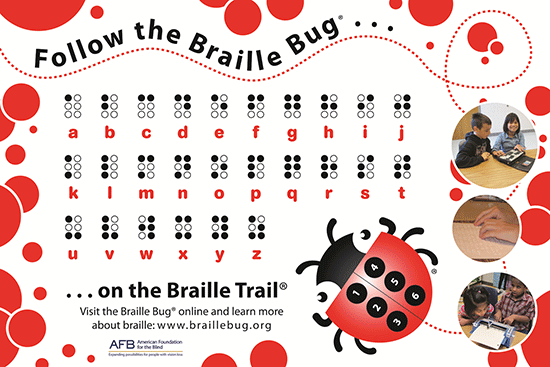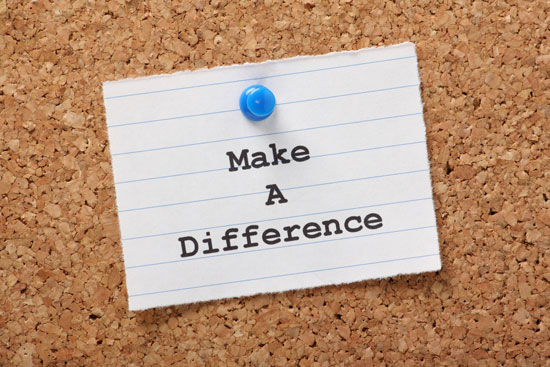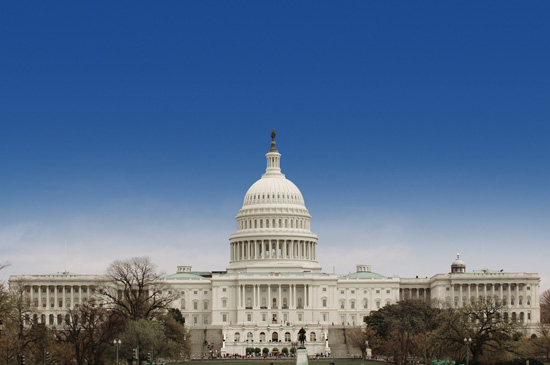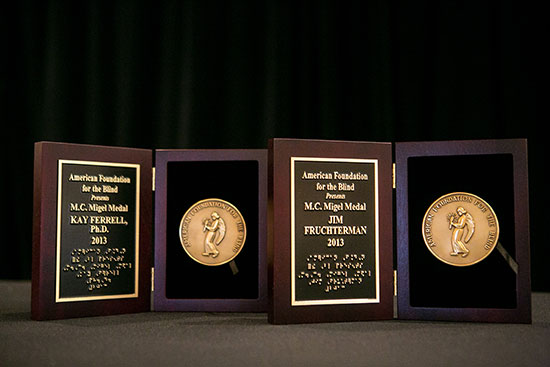Since 1992, December 3rd has been recognized as the International Day for Persons with Disabilities. It is important to recognize the voices of the hundreds of millions of people with disabilities who are burdened by the political and social forces in their native land.
Since 2015, we celebrate Disability Pride Month each July in honor of the passage of the Americans with Disabilities Act (ADA), which was passed in 1990.
For anyone unfamiliar with me, I'm Aaron Preece, editor of AFB's AccessWorld Technology and Digital Inclusion publication. I have severe low vision due to a degenerative retinal condition. For context, I primarily function as blind, e.g., using a screen reader and am not able to get any use out of magnification. When I was considering Disability Pride and what it means, I had some thoughts I thought worth sharing.
Each year, after the AFB Leadership Conference, I like to put together a list of my top 10 favorite things I learned or experienced. This year, I knew 10 wouldn’t cut it—it took some effort, but I managed to whittle the list to 11. This was the largest and most well-attended conference since our first, nearly 30 years ago. We had some 440 attendees, and from what I could tell, they enjoyed it as much as I did.
Saturday, January 4, marks the 205th birthday of Louis Braille, the inventor of his eponymous code for people with vision loss. In celebration of his birthday, as well as National Braille Literacy Month, we’ve assembled a roundup of braille-centric content throughout AFB's family of sites.
Now that the U.S. Congress has once again given the American people a reason to lose confidence in them by failing to avoid a federal government shutdown, there are more questions than answers. What will become of so many of the programs and services affecting people who are blind or visually impaired? What are the long-term implications? How long will the government be closed for business?
[Editor's note: The following is an excerpt from Diversity and Visual Impairment: The Influence of Race, Gender, Religion, and Ethnicity on the Individual, edited by Madeline Milian and Jane Erin. This excerpt was authored by Virginia Bishop.]
The American Foundation for the Blind (AFB) continues to invite nominations for the 2014 Migel Medals, the highest honor in the blindness field. The Migel Medal was established in 1937 by the late M.C. Migel, the first chairperson of AFB, to honor professionals and volunteers whose dedication and achievements have significantly improved the lives of people who are blind or visually impaired. The Migel Medal Awards consists of two categories, the Professional Award and the Lay/Volunteer Award.
The American Council of the Blind has just announced its new leadership, and it is my honor to congratulate Kim Charlson on her election as the new ACB President. Kim has been actively involved in ACB’s work for 30 years. Kim is also the first female president of a blindness consumer organization in the U.S., so this is quite an achievement.
I’d also like to congratulate Jeff Thom on his new role as first vice president of ACB. Jeff, of course, is on our board of trustees so I know he’s a natural leader and will do well in this position.
On the June 6th episode of Jimmy Kimmel Live, Kimmel featured a skit that involved actor Will Smith playing a blind basketball referee. Before reading on, I suggest that you watch the video— of course, it isn't audio described but hopefully you’ll get the gist regardless.




